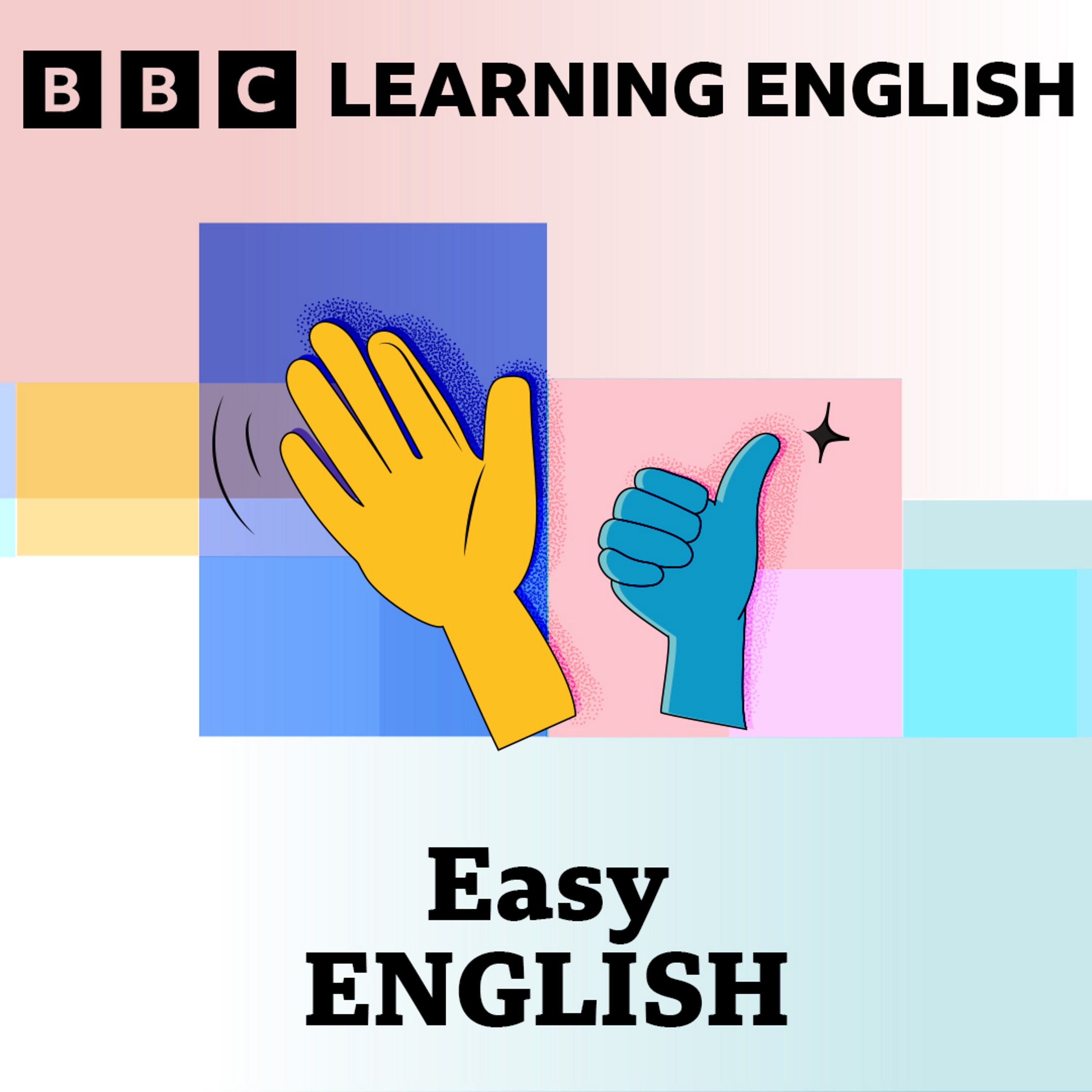
Real Easy English: Talking about mistakes

Learning Easy English
Deep Dive
Shownotes Transcript
This BBC podcast is supported by ads outside the UK. Ever wanted to stay on vacation longer? Us too. With Vrbo's long stay discounts, you can stay longer and save more on select properties. Gotta love a win-win. Book the perfect summer getaway today with Vrbo Private Vacation Rentals. Your future self will thank you later.
Hello and welcome to Real Easy English, the podcast where we have real conversations in easy English to help you learn. I'm Neil. And I'm Beth. You can find a video version of this podcast and a worksheet to help you learn on our website, bbclearningenglish.com.
How are you today, Beth? I'm OK, Neil. I'm a little bit tired. How are you? I'm very well. I'm fine. Great. Good, good. Well, today we're going to talk about mistakes. So hopefully I won't make many mistakes being tired. No, mistakes. Mistakes can be things that are wrong, like a mistake in a maths problem, but we can also use mistake…
to talk about really big things in life, decisions that you've made, actions that you've taken. Yes, that's true. So I think let's start the conversation. Let's do it. So Beth, have you made any mistakes recently?
Yes. So I recently left my suitcase on a train by mistake. Oh, no. So I was travelling from home to Leeds on the train and I got to the station at Leeds.
And there were loads of people and they were football fans and they were singing really loudly. And I just wanted to get off the train. And that's what I did. And then I realized about half an hour later that I didn't have my suitcase.
Oh, no. So... That's a bad mistake. Did you get it back? I did. I was so lucky. The train stopped at Leeds. So when I realised, I ran and said to the people on the platform...
my suitcase is on the train and they held the train for me and I ran up the platform I grabbed my suitcase and then they blew the whistle and the train went oh I was so lucky but yeah that was a big mistake and I will not make that mistake again everybody says that so earlier we said that
Mistakes can be small things, like my suitcase, but there are big mistakes that we can make. So have you ever made a big mistake, do you think? Yeah, well, once I had a job that I really, really enjoyed. I was teaching at a school in Prague in the Czech Republic, teaching English. And I loved the job and I had loads of really good friends, but I had this feeling that
that I needed to go move somewhere else, do something else with my life. And so I resigned. But then about a week or so later, I realized that I really, really didn't want to leave that school. So I went back to the boss and I said, I've changed my mind. I want to stay. And he said, well, it's too late because I've given your job to somebody else. Oh.
Oh, no, that's so sad. So you left your job, left Prague. No, actually, a bit like your suitcase, Beth.
It ended up being OK because the person who took my job then decided that he didn't want the job either. So in the end, I did stay. So when we make mistakes, Neil, sometimes we then have a regret or we regret the thing that we did. That means that we feel bad about it or we wish that we'd done something differently. Do you have any regrets?
Yeah, when I was a kid, I guess I was probably 12 or 13. I had some piano lessons and I quit as soon as I could. My parents gave me that choice. And I regret that because I love music and I play guitar and I think I would have enjoyed playing piano more.
I always think, to be honest, you shouldn't have any regrets because whatever you've done, you've learned something from it, even if...
something bad happened, then you know for next time and it's a kind of self-improvement thing. That is a very positive attitude to mistakes, Beth. Yeah, I think it's important to learn from your mistakes and that's a common expression in English, to learn from your mistakes.
Let's recap the vocabulary we've learnt in this podcast, starting with mistake. And a mistake is an action that is wrong or that you do when you don't mean to. And we can make a mistake. That means we do something wrong. Or we can do something by mistake, which means we do something accidentally without meaning to. For example, I left my suitcase on the train by mistake.
We also heard 'regret', which means feel bad or sorry about something you've done or a mistake that you've made. And we heard 'learn from your mistakes', which means remember the mistake and then not do it again the next time.
That's it for this episode of Real Easy English. You can test yourself on what you've learned with a worksheet on our website bbclearningenglish.com. Next week we'll be talking about trains, buses and public transport. See you then. Goodbye. Bye. Want more from BBC Learning English?
Test your level with our online quizzes. Learn new phrases from your favourite presenters and find transcripts of our programmes to help you read along. Head to our website, bbclearningenglish.com.